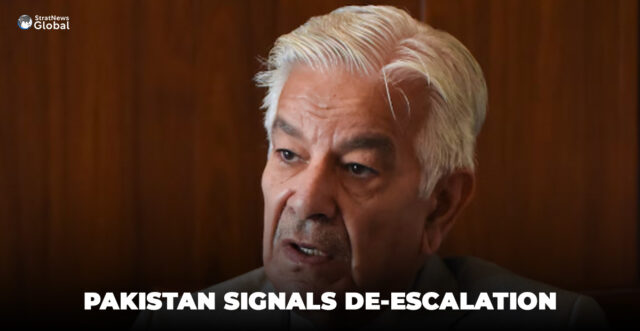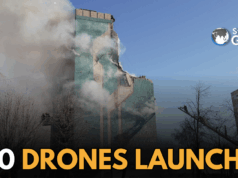Hours after India launched ‘Operation Sindoor‘—a coordinated military strike on terror hubs across Pakistan and Pakistan-occupied Kashmir (PoK)—Pakistan’s Defence Minister Khawaja Asif indicated that Islamabad was open to defusing tensions, but only if India takes the first step toward de-escalation.
“If India backs down, we will definitely wrap up this tension,” Asif told Bloomberg Television, making it clear that while Pakistan does not intend to provoke conflict, it will retaliate if attacked.
“We have been saying all along in the last fortnight that we’ll never initiate anything hostile towards India. But if we’re attacked, we’ll respond,” he reiterated.
Operation Sindoor: India Strikes Back
India’s military action, codenamed ‘Operation Sindoor‘, was launched in the early hours of Wednesday in retaliation for the Pahalgam terror attack that killed 26 civilians. The Indian armed forces targeted nine specific sites—allegedly used for terrorist operations—across Pakistan and PoK.
During a press briefing following the operation, senior Indian officials shared key details.
Foreign Secretary Vikram Misri, Wing Commander Vyomika Singh, and Colonel Sofiya Qureshi confirmed that the strikes were carried out between 1:05 a.m. and 1:30 a.m.
All targets were identified through precise intelligence and selected to minimise civilian casualties, officials said.
Wing Commander Singh emphasised that the operation focused solely on terror infrastructure, avoiding civilian areas.
Colonel Qureshi noted that the sites hit were directly linked to the planning and execution of cross-border terrorist activity.
Diplomatic Pressure Mounts
Amid the rising tensions, the United States has stepped in to prevent further escalation.
US Chargé d’Affaires Natalie Baker met with Pakistani Deputy Prime Minister and Foreign Minister Ishaq Dar in Islamabad to discuss ways to cool the situation.
According to Pakistan’s Foreign Ministry, Baker conveyed Washington’s desire for de-escalation and emphasised ongoing US engagement with both New Delhi and Islamabad.
“We are reaching out to both parties and, of course, telling them not to escalate the situation,” US State Department spokesperson Tammy Bruce was quoted as saying.
Bruce also noted that US Secretary of State Marco Rubio believes “diplomacy must take the lead” and has encouraged other international leaders to mediate as tensions unfold.
In addition to the US, global powers such as China and Russia have expressed growing concern over the India-Pakistan standoff. Both countries have called for restraint and urged a return to dialogue to prevent further deterioration of regional stability.
As diplomatic efforts intensify, the focus remains on whether both sides will heed calls to stand down—or whether the region will inch closer to a broader confrontation.
(With inputs from IBNS)





